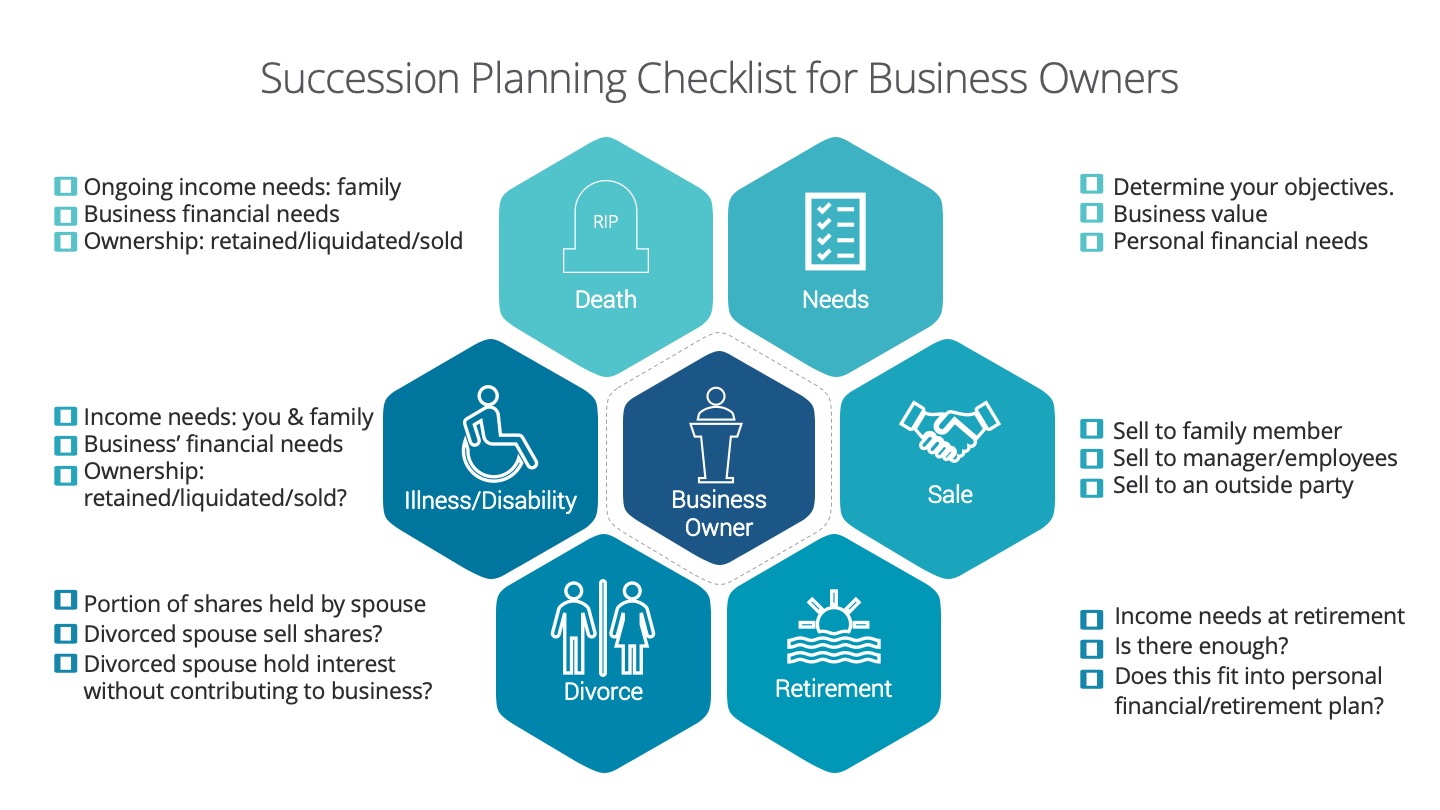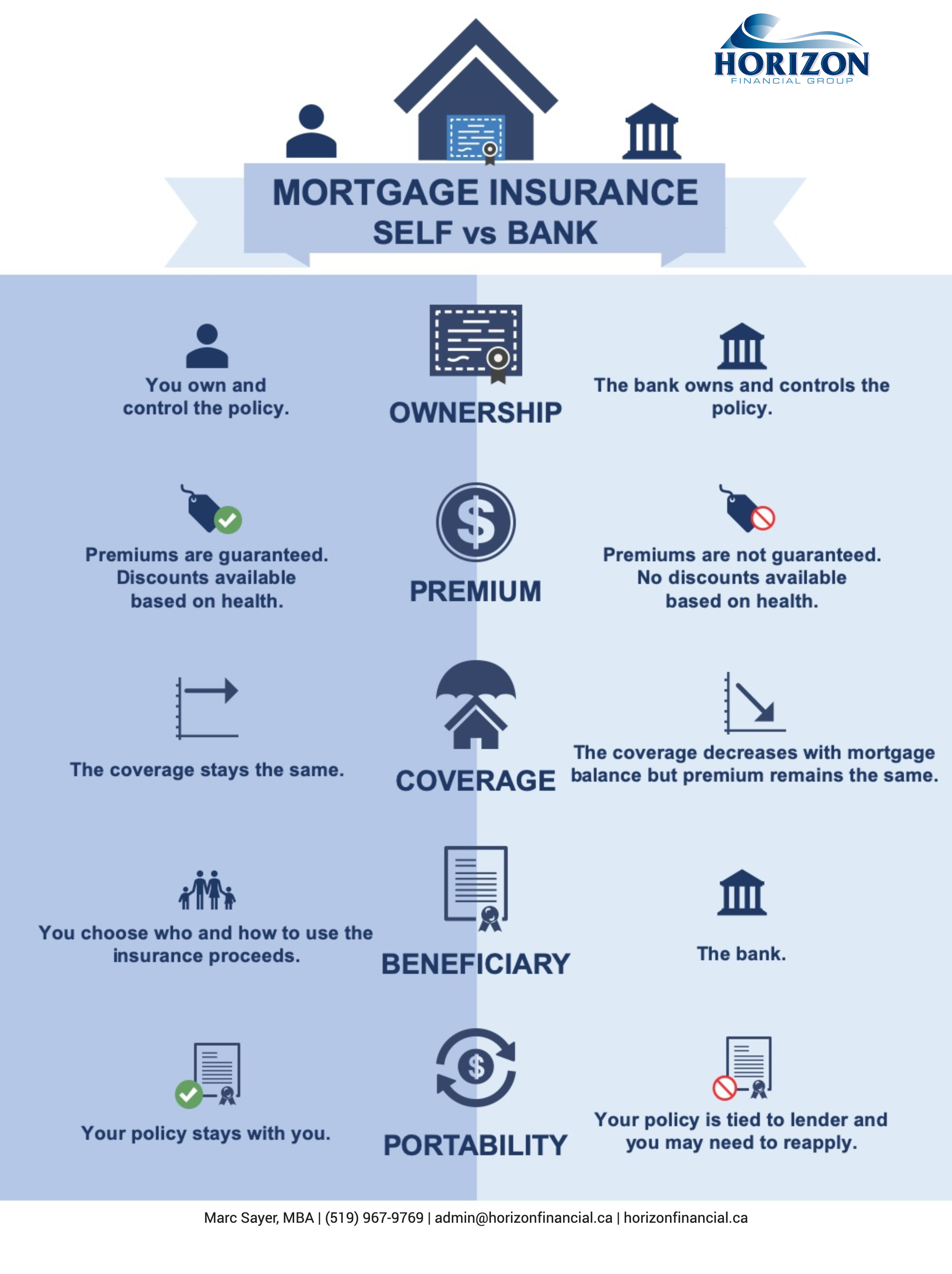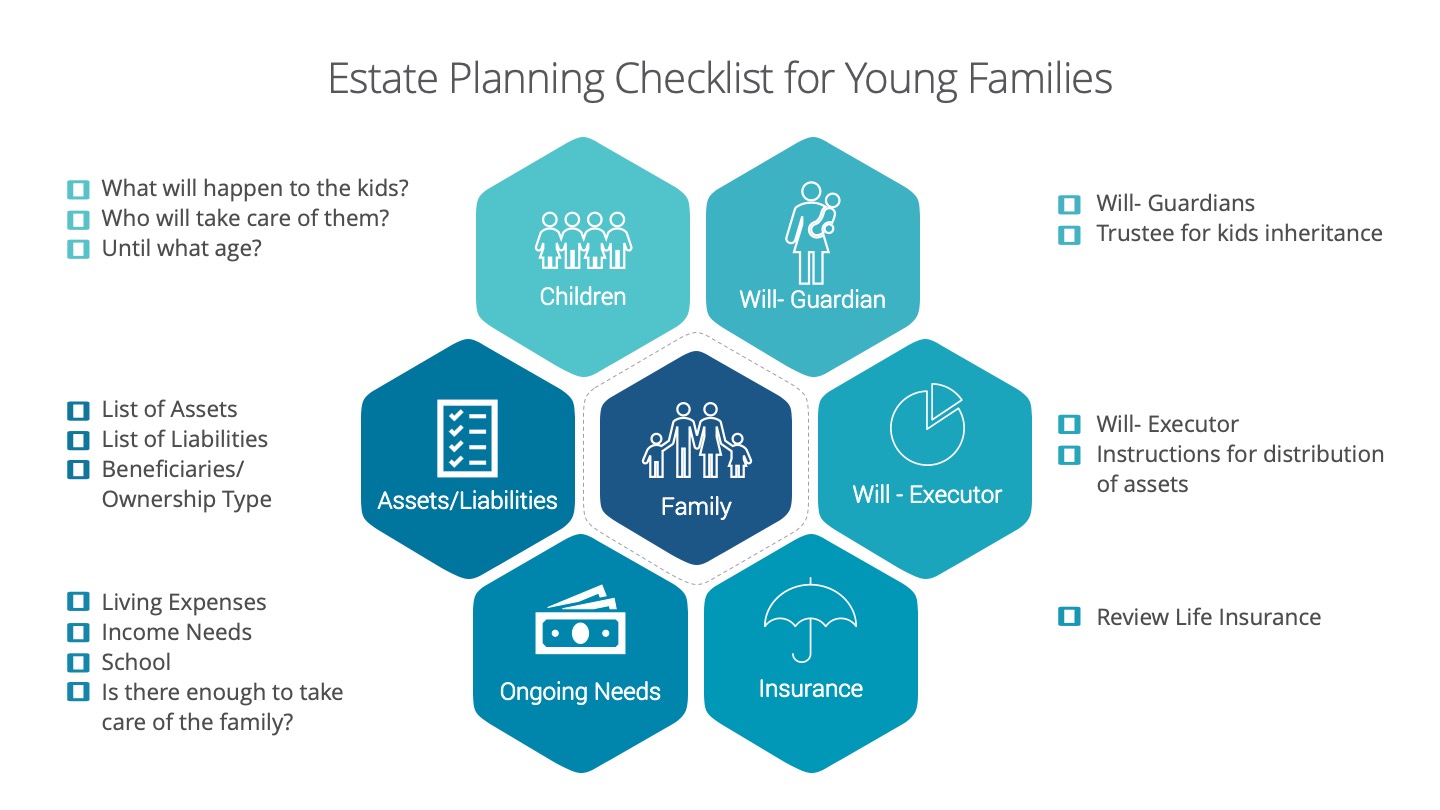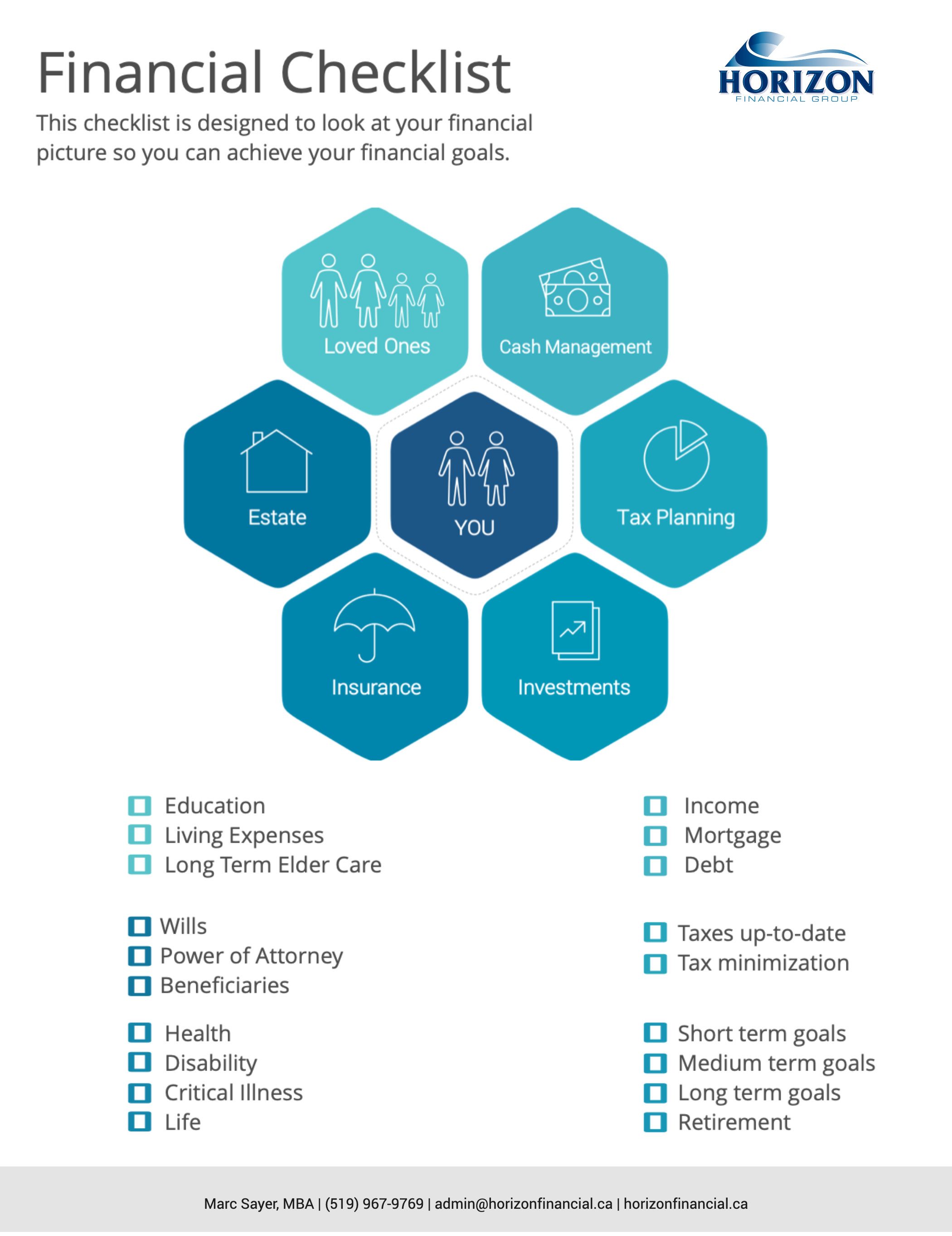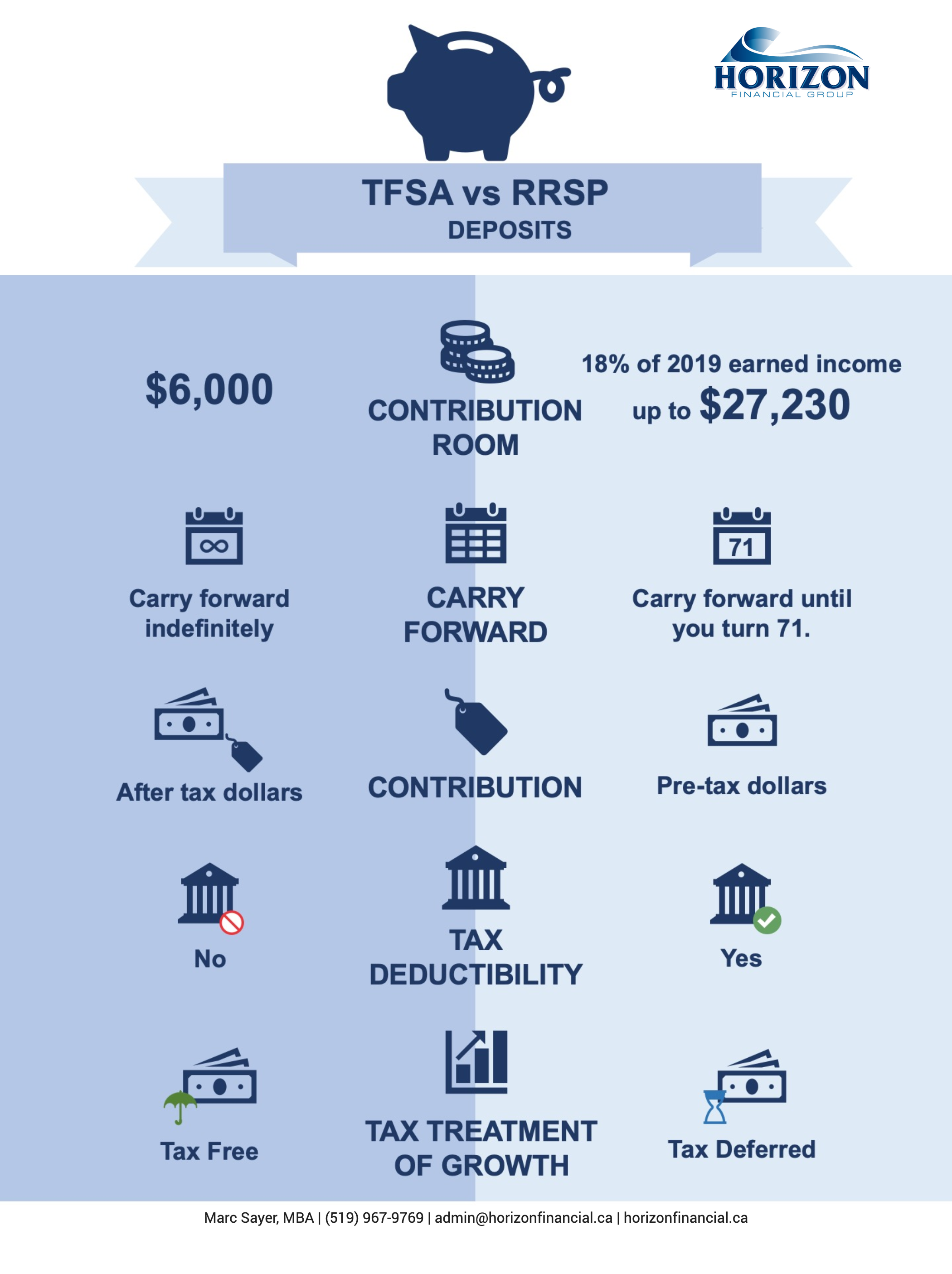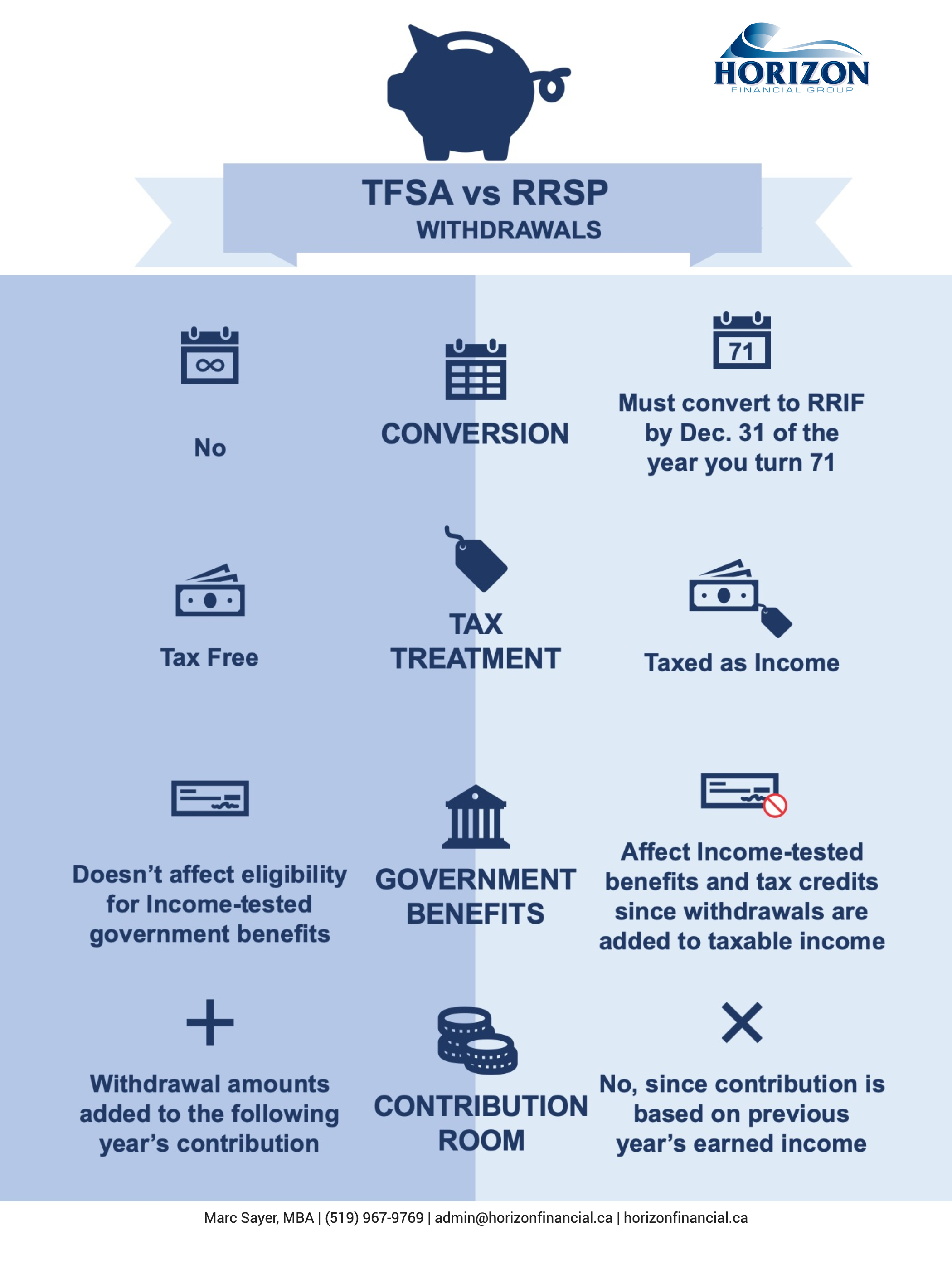In the Deposit phase, we look at:
-
Contribution Room
-
Carry Forward
-
Contribution
-
Tax Deductibility
-
Tax Treatment of Growth
Contribution Room
TFSA : $6,000 for 2020. If you never opened a TFSA, you can contribute up to $69,500 today.
-
$5,000 for each year from 2009 to 2012;
-
$5,500 for each of 2013 and 2014;
-
$10,000 for 2015;
-
$5,500 for each of 2016, 2017 and 2019
-
$6,000 for each of 2019 and 2020
RRSP : 18% of your 2020 pre-tax earned income or $27,230. So for example if you earned $60,000, then your deduction limit would be $10,800 (18% x $60,000). If you earned $200,000, then your deduction limit would be capped at the max limit of $27,230.
Carry Forward
TFSA : You can carry forward your unused contribution room indefinitely, as long as your a Canadian resident, older than age 18 with a valid social insurance number. Withdrawals will usually result in new contribution room.
RRSP : You can carry forward your unused contribution room until the age of 71 when you have to convert your RRSP to a RRIF. Any withdrawals made from your RRSP will not result in new contribution room.
Contribution
TFSA : You are contributing to your TFSA with After-tax dollars.
RRSP : You are contributing to your RRSP with Pre-tax dollars.
Tax Deductibility
TFSA : Contributions are not tax deductible.
RRSP : Contributions are tax deductible.
Tax Treatment of Growth
TFSA : The growth inside a TFSA is tax free therefore it’s a great savings vehicle for immediate objectives such as a down payment for a home.
RRSP : The growth inside an RRSP is tax deferred, which means at withdrawal, you will need to pay tax, therefore it’s a good choice for long term goals such as retirement.





